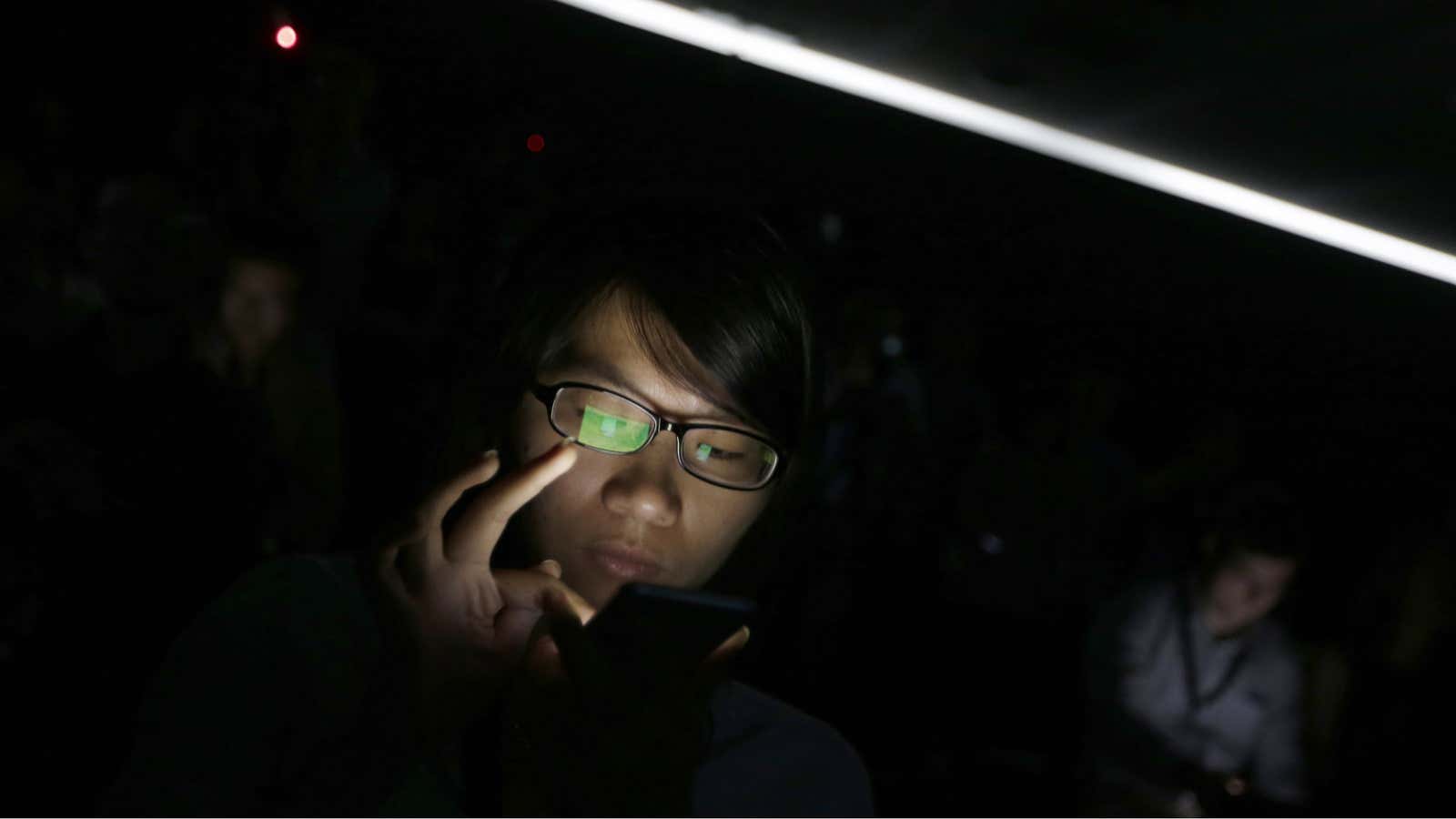Another day, another foreign app blocked in the world’s biggest mobile market.
In China’s cross-hairs this time is Instagram, Facebook’s popular photo-sharing app. Tech in Asia and other outlets have reported that the app was unceremoniously removed from China’s largest Android app stores yesterday. It’s a familiar scenario for foreign apps trying to gain a foothold in China—a series of seemingly capricious and unpredictable outages that could be the result of censorship, economic nationalism, or something else entirely.
In the case of Instagram, the picture is typically murky. The app suddenly disappeared from popular app stores run by Baidu, Xiaomi, Wandoujia, Qihoo 360, Tencent, and 91 Wireless. But Instagram was still available in Apple’s iOS app store, and Quartz determined that Android users who had previously downloaded the app were still able to use it—unless, that is, they were on China Mobile’s 3G network, which has never allowed access to Instagram’s servers.
Facebook was not available for comment, and in the absence of concrete information, conspiracy theories abounded. Did a Chinese official finally notice that the Dalai Lama has an Instagram account? Was Instagram’s app removed because its database was recently migrated to servers run by Facebook, which is blocked on the mainland? Was the service penalized because democracy protesters in Hong Kong were using it to document a major march last week? Or perhaps the move was simply an attempt to benefit domestic competitors?
“Causing minor, mysterious disruptions is but one method for planting a ‘No Trespassing’ sign towards foreign competitors,” Tech in Asia’s Josh Horwitz observed. “Or maybe some guy just pulled the wrong lever.”
The ambiguous attempts to block foreign apps in China has also ensnared Line and KakaoTalk, chat apps that compete with China’s homegrown WeChat. Canadian researchers released a report today concluding that the disruption to these messaging apps was down to “DNS tampering and HTTP request filtering.” But of course it’s not quite that simple—the news site Huxio reported that the blockage only applies to Line users whose accounts are linked with mainland phone numbers. Meanwhile WhatsApp—which also competes with WeChat and, like Instagram, is owned by Facebook—was functioning normally.
The upshot of all this confusion—not to mention app piracy, competition from clones, and a lack of reliable payment systems—is that China remains extremely hostile ground for foreign tech firms looking to tap into the country’s vast user base. Evernote’s CEO told the Wall Street Journal last year (paywall) that China was poised to become the company’s second biggest market after the United States, but warned: “It could all fall apart tomorrow.”
